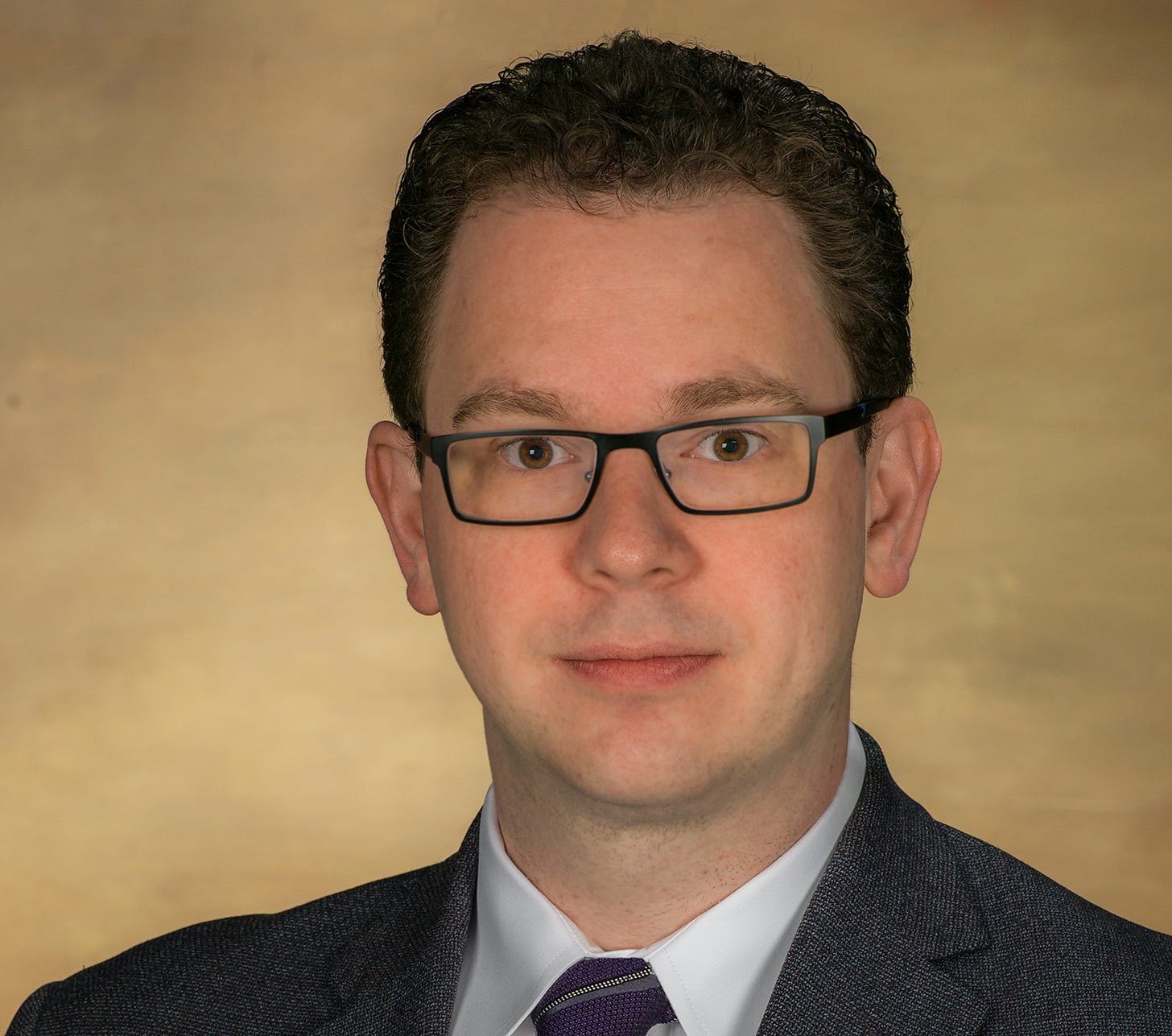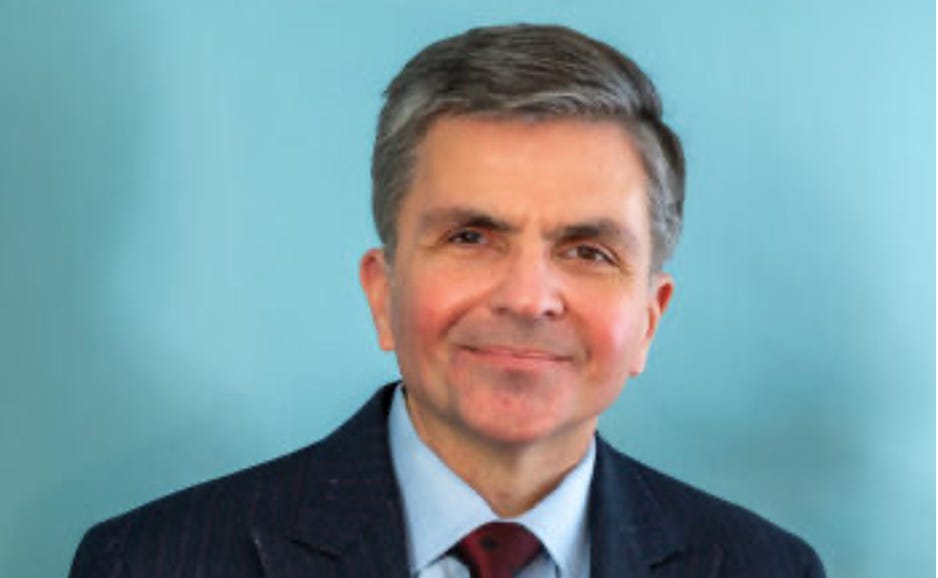Future cast
FreeCons offer ways to preserve and enhance American greatness
As we explained in a previous newsletter, Freedom Conservatives are fond of history — but it’s not because we’re trapped in the past. We’re committed to moving America forward.
The hundreds of conservative leaders who signed the Freedom Conservatism Statement of Principles did so because we believe America‘s founding principles are rooted in timeless truths about markets, civic virtue, and human nature.
Previous generations translated these principles into sound policies, making America the greatest country in human history. Now it falls to us to apply them skillfully to the challenges of the 21st century, thus preserving and enchancing American greatness.
Are you with us? One way to show your support would be to attend our first annual Freedom Conservatism Conference. It will be held on Monday, February 24, 2025 at the National Press Club in Washington. Click here to register.
Another way to help out is to forward this newsletter to colleagues and friends. The larger our audience, the more influence we’ll have on the American Right and our country’s future:
Today we feature FreeCons who argue that innovation, optimism, and a grateful patriotism should guide today’s policymakers in Washington, state capitals, and local communities.
Tech Deck
Jordan McGillis is economics editor at the Manhattan Institute’s magazine City Journal. A FreeCon signatory, McGillis writes on energy, technology, and economic progress for such publications as the Wall Street Journal, Bloomberg, and the New York Post.
Writing in City Journal, he outlined the four-year migration to the Right by technologists, venture capitalists, and entrepreneurs. He quoted Peter Thiel’s book Zero to One, explaining that optimists such as scientists, engineers, doctors, and business executives once led the Western world.
“From the 1970s on,” he wrote, “that vanguard has not been as prominent, and technological advance has slowed amid institutionalization and bureaucratization.
“A little more than a decade on from Thiel’s book, however, torchbearers for the older form of optimism have reclaimed the center of gravity in America.”
Figures such as Elon Musk, J.D. Vance, David Sacks, and Chamath Palihapitiya have rallied to Republicans because they offer “openness to new technology, more appreciation for those who pursue it, and greater tolerance for the risks that doing anything novel entails.”
“One could argue this rightward surge is pure negative polarization: the Democrats make my life harder, so I’m going to support the Republicans. Matt Yglesias argues that it’s even simpler: rich tech bros want lower taxes. But the evidence suggests there’s something more consequential happening here.”
Beacon of freedom
Steve Moore is co-founder of Unleash Prosperity and a senior visiting fellow in economics at The Heritage Foundation. Previously, Moore served as a senior economic adviser to President Trump. A FreeCon signatory, he is also the founder of the Club for Growth and the author of six books.
In a recent article for The Washington Times, Moore exhorted President Trump to unite the country around a new American patriotism.
“This should be a red, white and blue message centered on a renewed appreciation and celebration of American virtue and greatness,” Moore wrote. “It should be an extension of Ronald Reagan’s message of America being a ‘shining city on a hill’ and a ‘beacon of freedom’ for the rest of the world.”
“Recent polling suggests that our citizens do appreciate American greatness. The only group that doesn’t are the ideologically isolated cultural and ‘highly educated’ elite,” Moore illustrated. “The vast majority of Americans of every race and income category — including 58% of Blacks — believe that America is ‘the greatest country on earth.’”
He explains that the current administration has divided the country “with a ruinous and unpopular progressive agenda.” According to Moore, President Trump’s administration has the opportunity to magnify America’s successes and virtues as the nation approaches its 250th birthday.
Men of the past
Jay Cost is the Gerald R. Ford nonresident senior fellow at the American Enterprise Institute, where he focuses on political theory, Congress, and elections. A FreeCon signatory, he is also a visiting scholar at Grove City College and a contributing editor at the Washington Examiner.
In the Examiner, Cost explored the resemblance between the administrations of Joe Biden and Jimmy Carter. “The similarities are striking,” he wrote. “On a surface level, inflation helped sink the Carter presidency, just as it did Biden. The Soviet invasion of Afghanistan was a foreign policy problem for Carter, as the Taliban takeover of Afghanistan damaged Biden.”
Cost argued that both were “profoundly out of their depth. The job of the modern presidency is the most taxing in the world. The president must possess a combination of several skills — decisiveness, intelligence, wisdom, prudence, and virtue.”
“A centrist governor,” Carter “really had no business leading the post-Great Society, post-Watergate Democratic Party,” he wrote.
As for “‘Scranton Joe’ Biden,” with his “affected working-class bluster,” he was a useful wingman for Barack Obama 16 years ago. “But in 2024, the heart and soul of the Democratic Party is the professional and female upper middle class — a group for whom Biden was only a choice of convenience.
“The two presidents, 39 and 46, were not just bad at the job. They were men of the past, which made them terrible fits for their own party.”
More confidence
Mark Tooley is president of the Institute on Religion and Democracy, an ecumenical think tank that studies historic church teaching and Christian realism. A FreeCon signatory, Tooley serves as publisher of the foreign-policy journal Providence and writes frequently for such publications as The Wall Street Journal, The Washington Post, World magazine, and First Things.
In National Review, Tooley wrote on the pessimism of white evangelicals toward the United States of America and secular culture.
Their political rhetoric “does not offer much optimism” about a revival of Christianity in America “in the absence of a spectacular supernatural intervention,” he wrote. Tooley compared this sentiment to the energetic optimism of the “Moral Majority” movement during the late 1970s.
“There was little wrong about America that America could not itself, with God’s help, repair,” he wrote. “In 45 years, political evangelicalism has journeyed from wanting to save America to mostly wanting to protect itself from America.”
He also compared Ronald Reagan’s and George W. Bush’s intimate life experiences with evangelicalism to Donald Trump’s limited interaction. “Perhaps the first president not to use the language of civil religion, Trump understandably views his relations with evangelicals as strategically transactional. They will vote for him if he delivers on some of their issues.”
Fears of a post-Christian America “are not baseless,” Tooley concluded. “But they are also self-fulfilling.
“Any reversal of Christian decline in America will require more confidence about Christianity and about America. And that confidence, if meaningful, will have to supersede any election cycle.”
In the mix
• In the Wall Street Journal, Adam J. White reviewed a new book on the history of the U.S. Supreme Court.
“Tocqueville emphasized that Americans diminished the dangers of judicial power by imposing institutional limits,” wrote White, a FreeCon signatory and senior fellow at the American Enterprise Institute.
“Judges would opine only on the principles relevant to specific cases and not take up hypothetical questions that might someday arise; American democracy itself, especially the work of its legislatures, would move at a pace that allowed constitutional matters to be litigated over months and years, not days and weeks.”
The new book “reminds us that the Supreme Court has always faced challenges and attacks and that it has kept its integrity, thanks to statesmanship inside and outside the court.”
• Charles C.W. Cooke is podcast host and senior editor at National Review. He’s also a FreeCon signatory.
In a recent NRO post, Cooke contrasted the mature reaction of U.S. Sen. John Fetterman (D-PA) to the murder of Brian Thompson with the “revolting statement” of U.S. Sen. Elizabeth Warren (D-MA).
“Violence is never the answer,” Warren said. “But,” she continued, “people can only be pushed so far.”
Fetterman observed that Thompson “has two children that are going to grow up without their father.
“It’s vile. And if you’ve gunned someone down that you don’t happen to agree with their views or the business that they’re in, hey, you know, I’m next, they’re next, he’s next, she’s next.”
• Joseph Loconte is a presidential scholar in residence at Florida’s New College and a FreeCon signatory. His new YouTube channel “History and the Human Story” curates Loconte’s documentary film series J.R.R. Tolkien and C.S. Lewis: War, Friendship, and Imagination as well as his upcoming series Gift of the Italians, which relates the remarkable contributions of Italians to Western Civilization.




